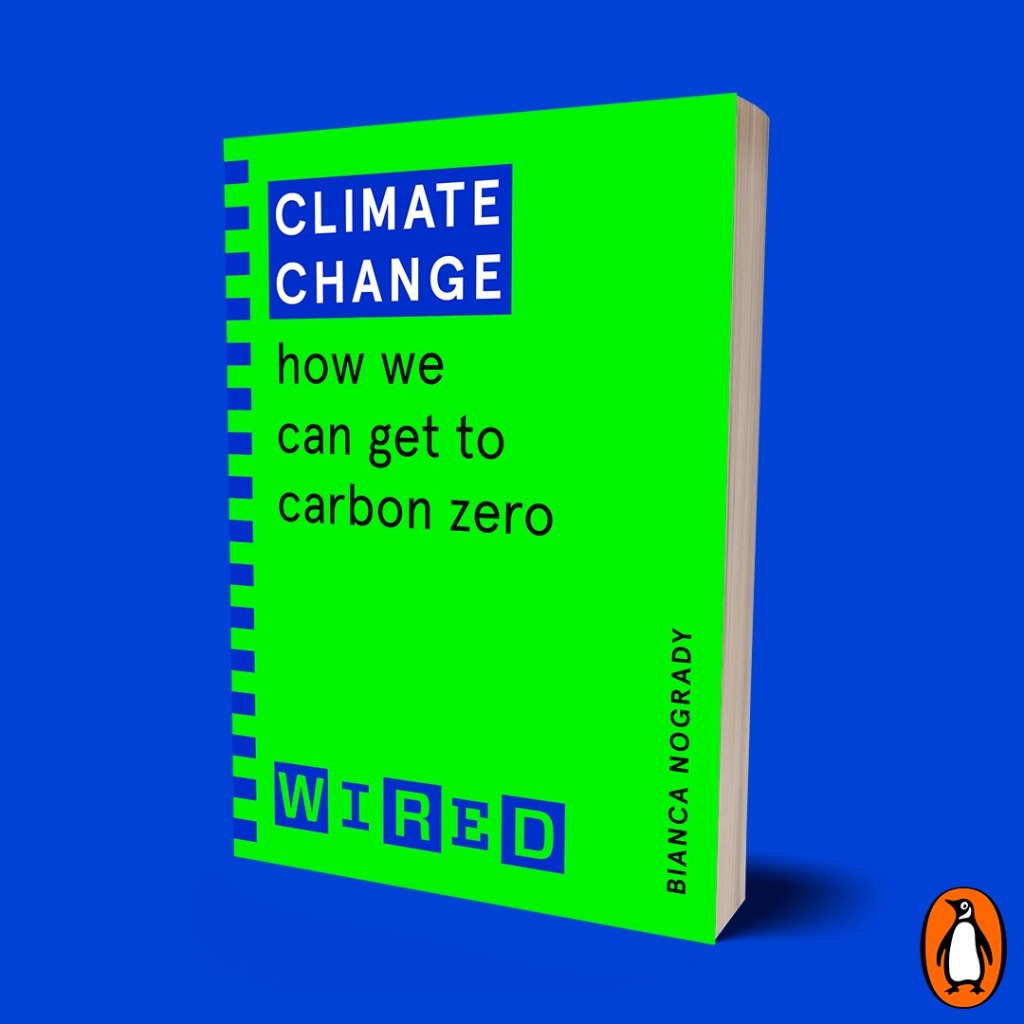
Climate Change: How We Can Get To Carbon Zero
Random House Business and Wired UK, 2021
Man-made global warming is advancing inexorably. Are there ways to halt it?
Humans have changed the climate of an entire planet. And we can change it back. In this one-stop pocket guide to achieving carbon zero, science journalist Bianca Nogrady looks at the technologies and innovations that will enable us to decarbonise every aspect of life, from electricity to transport, food, industry, homes, and waste systems. The book also explores how carbon markets will drive this change, and what our options are for actively removing carbon dioxide from the atmosphere to help get the climate emergency back under control.
“... a short, punchy, effective book” – Simon Cocking, Irish Tech News
“Brilliantly clear and compelling.” – Ben Keene, Rebel Book Club
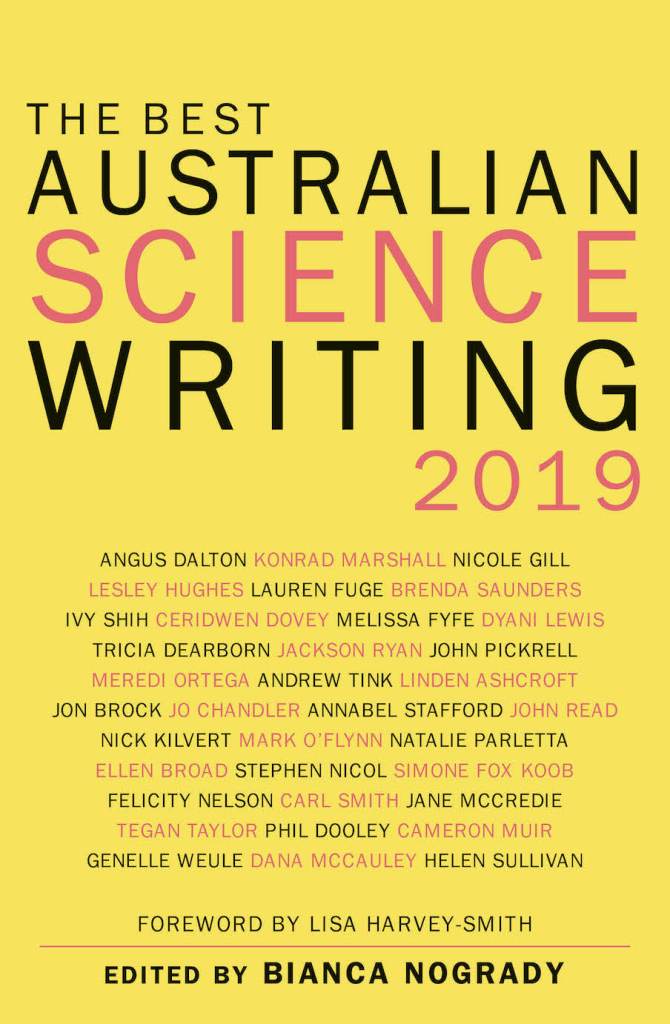
The 2019 Best Australian Science Writing
New South Publishing, 2019
From the blue depths of the ocean to the twinkling vastness of black space; from the pulsing red cells of the human heart to the biological behemoth of the Great Barrier Reef; from the nanorobot to the Large Hadron Collider… science is everywhere.
Science writing is also everywhere. Once it was the preserve of printed newspapers, magazines and books. Now writing about science can also be found in a myriad of online publications and outlets, in novels and books of poetry, in blogs and essays.
Sometimes science writing is a simple ode to the wonder of scientific discovery and achievement – whether that be landing a rover on a distant asteroid or unlocking cancer’s immunosuppressive secrets. Sometimes it’s a writers’-eye view of the winding path so many scientists travel in their careers.
But not all science writing is a cheer-squad for science. Like all human endeavours, science is flawed and fallible. Science can also be misappropriated and misguided, with profound consequences for our lives, ecosystems and planet. Sometimes, science writing is about shining a light into the darker corners of scientific endeavour. The Best Australian Science Writing is a celebration of science writing in all its forms and about all scientific fields.
*****
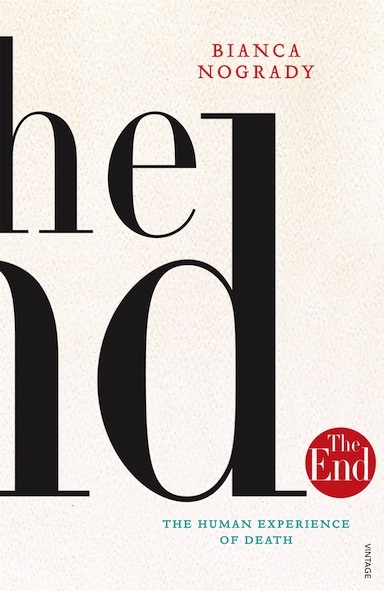
The End: The Human Experience Of Death
Penguin Random House, May 2013
We will all die, eventually. Have you every wondered what it will be like?
The End explores the human experience of death from every angle – the physiological and the philosophical, from the perspective of those experiencing it and those watching from the bedside, from the physician to the priest – with the goal of answering that question we so often ponder but rarely ask; what is it like to die?
Told through the stories and experiences of people who have been touched by death in some way, The End is an engaging, compelling, funny, sentimental and poignant read; a book that attempts to shed some light on an experience that has been shrouded in fear and mystery. It will make you laugh, it will make you cry, but it will change the way you think about death.
“… a brave, clear-eyed work” – Publishers Weekly
“… enlightening, in the best possible way” – Helen Hayward, Sydney Morning Herald
“… a thought-provoking read that is sure to prove a conversation-starter” – Megan Howe, Australian Doctor
“… a treatise for anyone who has contemplated their own mortality” – Martin Stevenson, The Launceston Examiner
“… Nogrady offers an account which is seldom tragic, often amusing and endlessly fascinating” – Larry Timberlake, Panui
“Well researched, clearly written, technically precise yet brimming with compassion” – GP Speak
*****
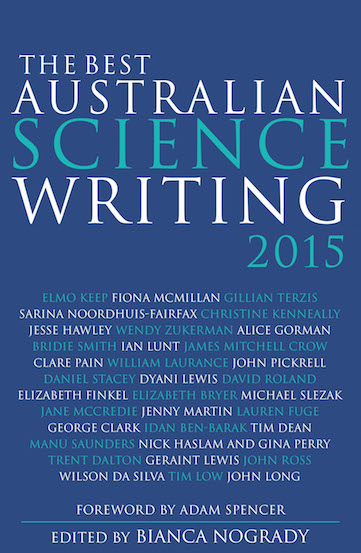
The 2015 Best Australian Science Writing
New South Publishing, 2015
How does dust connect the cosmos with our bed sheets? Why do lobsters do the Mexican Wave backwards? And what makes us feel ‘wetness’ when there’s no such thing as ‘wet’ nerve receptors?
Now in its fifth year, The Best Australian Science Writing 2015 draws on the knowledge and insight of Australia’s brightest thinkers in examining the world around us. From our obsession with Mars to the mating habits of fish, this lively collection covers a range of topics and delights in challenging our perceptions of the planet we think we know.
Starring a dazzling array of Australia’s science writing talent, this volume is edited by Bianca Nogrady and includes a foreword by Adam Spencer.
“The editorship of Bianca Nogrady has brought a tighter focus to the collection this year…. It presents science writing in all of its diversity and creativity – far from the steady diet of cheesy formulaic science journalism on which we were forced to survive in earlier decades.” – Danielle Clode, The Australian Book Review
*****
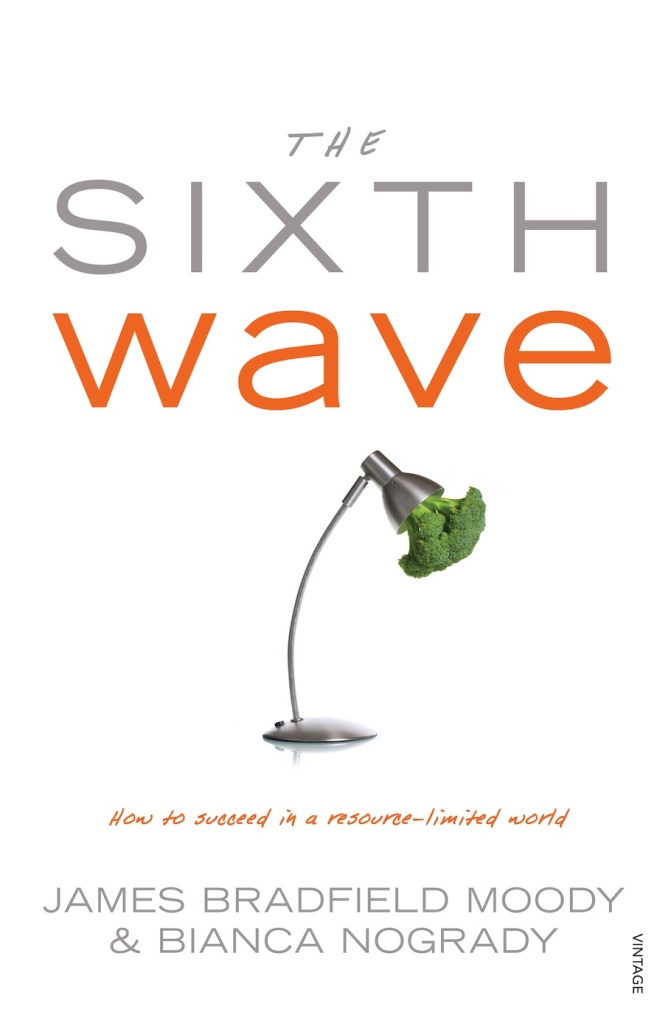
The Sixth Wave: How To Succeed In A Resource Limited World
Penguin Random House, April 2010
Since the Industrial Revolution, the tide of progress has ebbed and flowed: five distinct waves, each starting with disruptive new technologies and ending with a global depression, have transformed our industries, societies and economies almost beyond recognition.
We are now on the cusp of another massive transformation – the sixth wave.In this wave a spectacular boom in technology and powerful new markets will drive a shift away from resource dependence to a new way of life: resource efficiency. Waste will be a source of opportunity and nature a source of inspiration.
The Sixth Wave is a business book, a motivational book, a bold prediction and a roadmap to the future. It is for anyone interested in understanding how the next wave of innovation will change our lives, and how to succeed in a resource-limited world.
The Sixth Wave is co-authored with Dr James Bradfield Moody.
“This is a thoughtful, careful, wise and very important book” – Sir Nicholas Stern, The Stern Review on the Economics of Climate Change.
“The Sixth Wave is a window to the future.” – Don Tapscott, author of Wikinomics and Macrowikinomics.
“Exactly right for the times and very nicely written.” – Narelle Hooper, AFR BOSS magazine.
“Pragmatic and uplifting, a definite ‘must read’.” – Fiona Wain, CEO of Environment Business Australia.
“Bold, timely and inspiring … this book could change your thinking about innovation and the future” – Dr Geoff Garrett, CSIRO Chief Executive, 2001-08
